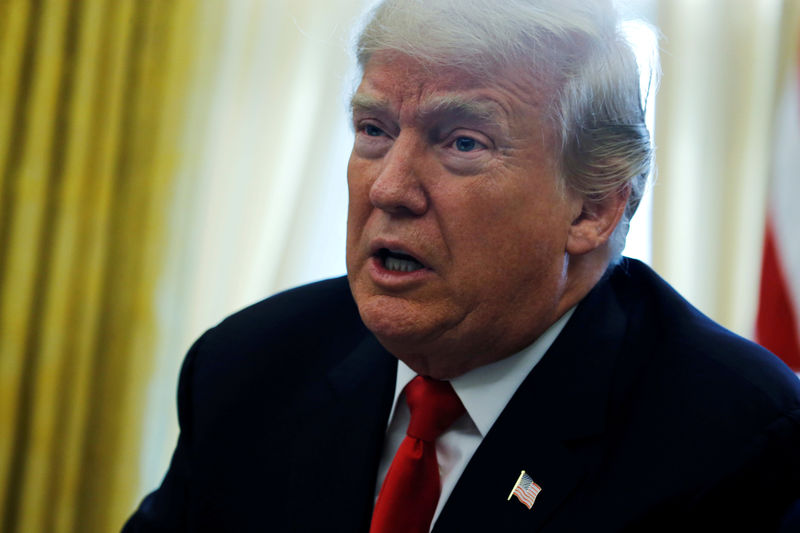By Karen Freifeld
(Reuters) - White House Counsel Donald McGahn threatened to quit last June because he was "fed up" after President Donald Trump insisted he take steps to remove the special counsel investigating Russian interference in the 2016 U.S. election, a person familiar with the matter told Reuters.
The New York Times reported on Thursday that Trump backed down from his order to fire Special Counsel Robert Mueller after McGahn said he would resign rather than follow the directive, citing four people told of the matter
Trump on Friday denied the report.
"Fake news, folks, fake news," the president told reporters when asked about the report in Davos, Switzerland, where he is attending the World Economic Forum of business and political leaders.
If Trump did try to fire Mueller, it could strengthen a case for obstruction of justice against the president based on whether he had "corrupt intent" in trying to hinder Mueller's investigation, legal experts said.
A person familiar with the situation told Reuters Trump sought to have Mueller removed over what the president perceived as conflicts of interest. These included Mueller's relationship with James Comey, who succeeded Mueller as FBI director until Trump fired him in May, and Mueller's resignation from one of Trump's golf clubs over a fee dispute in 2011, other people said.
The person told Reuters on Friday that Trump asked McGahn to raise what he said were Mueller's conflicts with Deputy Attorney General Rod Rosenstein because the president thought they were serious enough to remove Mueller.
Rosenstein appointed Mueller after Attorney General Jeff Sessions recused himself from the Russia investigation and is the official overseeing the special counsel.
McGahn, who could not be reached for comment, did not discuss the issue with Rosenstein and threatened to quit when Trump continued to insist that he do so, the person said.
The lawyer did not issue an ultimatum directly to the president but told then White House chief of staff Reince Priebus and then chief strategist Steve Bannon he wanted to quit because he was "fed up with the president," the person said.
The source added that it was possible Bannon and Priebus did not know all the details of the Trump's discussions with McGahn about Mueller at that time.
Neither Bannon nor Preibus could be reached for comment.
Peter Carr, a spokesman for Mueller, declined to comment on the report.
White House lawyer Ty Cobb, who is representing the presidency in the Mueller probe, declined comment, citing respect for special counsel.
Trump could be questioned about the incident by Mueller's team, which sources say has been negotiating with the president's personal lawyers about a possible interview in the coming weeks.
Moscow has denied the conclusions of U.S. intelligence agencies that it meddled in the election to help Trump. Mueller's office is also investigating potential coordination between the Trump campaign and Russia, something that Trump has repeatedly denied.
According to sources, the special counsel has asked other witnesses about whether Trump has tried to obstruct justice by, for instance, firing Comey, who previously headed the Russia investigation as FBI Director.
To build a criminal obstruction of justice case, federal law requires prosecutors to show that a person acted with an improper, or "corrupt," intent, such as protecting himself or those close to him.
Renato Mariotti, a former federal prosecutor in Chicago, said moving to fire Mueller would further strengthen an obstruction case against Trump.

"Even after he knows that he is being looked at for obstruction of justice and has seen legal analysts talk about obstruction with the Comey firing he is still moving forward and doing what he can to influence that investigation," Mariotti said.